The Top Accounting Practice Management Software in 2025
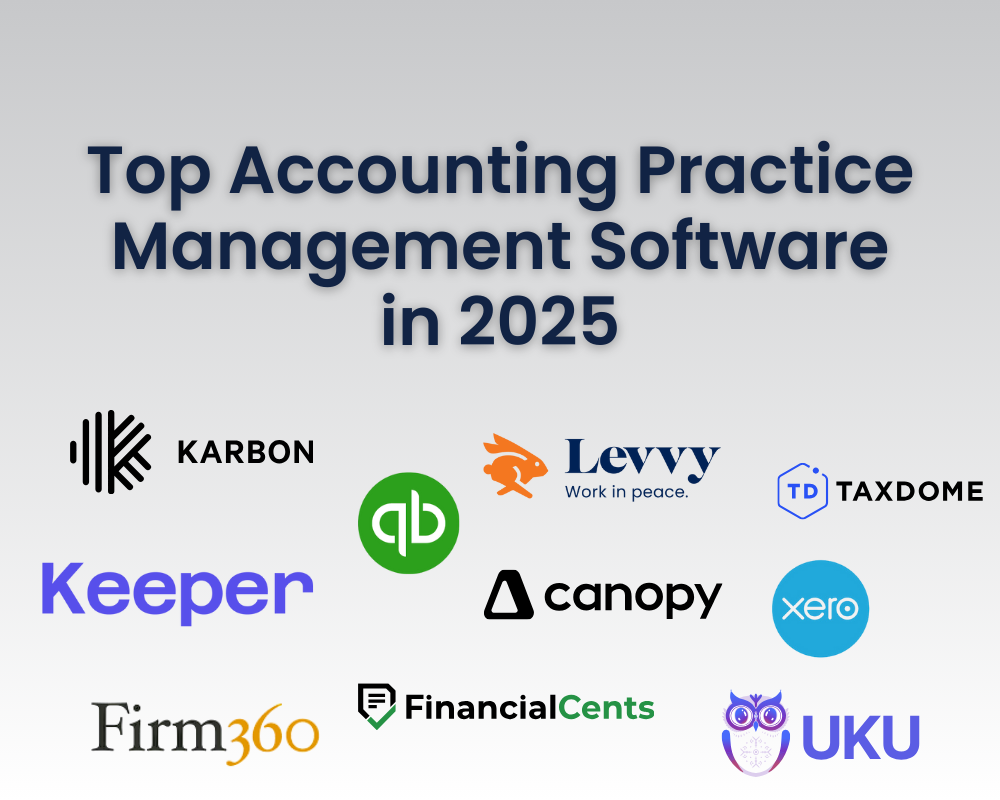
For modern accounting firms, efficiency is more than a luxury. It’s a necessity. With deadlines, client expectations, and growing workloads, the right accounting practice management software can make all the difference between chaos and clarity.
Levvy was built by accountants, for accountants—and we may be a little biased, but we do believe we’re the best software for the job. However, we also know there’s no shortage of fantastic contenders. That’s why we’ve put together this list of the best platforms you should consider in 2025 if your firm is looking to streamline operations and deliver faster value.
What Is Accounting Practice Management Software?
You can think of your accounting practice management software as your firm's command center: it brings together workflows, client communication, task management, billing, and document handling—all in one digital hub. It helps firms manage operations, not just the numbers.
Benefits of Accounting Practice Management Software
Here are just a few of the reasons a great accounting practice management software can make all the difference in your firm:
- Automation & Efficiency: Reduce manual work and redundant tasks. Firms report up to 89% improvements in profitability and efficiency through automation.
- Better Cash Flow: Tools like automated billing and payment collection can cut down receivables by 30%.
- Scalability: Cloud-based solutions empower firms to take on more clients without hiring more staff.
- Risk Reduction: With built-in compliance, secure data handling, and auditing alerts, firms lower chances of costly mistakes.
- Client Satisfaction: Clear workflows, organized tasks, and real-time communication keep deadlines in check and clients informed.
Key Features in Accounting Practice Management Software
Most account practice management software will offer the following features:
- Task & Project Management: Assign tasks, track progress, and maintain visibility across your team.
- Workflow Automation: Use templates to automate complex or repetitive tasks end-to-end.
- Document & Client Management: Secure portals, file storage, and client communication tools centralize interactions.
- Time Tracking & Billing: Capture hours, generate invoices, and improve profitability tracking.
- Reporting & Insights: Dashboards show project status, workload, profitability, and firm health.
- Integrations & Usability: Look for intuitive interfaces and compatibility with existing tools.
Best Accounting Practice Management Software in 2025
In a sea of softwares to choose from, here’s what stands out this year:
1. Levvy
Levvy is your modern, all-in-one solution designed to streamline accounting workflows—from client onboarding to task automation. We check all the critical boxes: workflow templates, document & client management, billing, and real-time oversight.
Key features:
- Workflow Tracking: Levvy’s visual dashboards give firms a bird’s-eye view of every client engagement. From open tasks to deadlines, you’ll always know what’s on track and what needs attention—making project management far less stressful.
- Automated Reminders: Stop chasing clients or nudging team members manually. Levvy sends automated reminders to both staff and clients, ensuring deliverables are submitted on time and nothing slips through the cracks.
- Client Interaction Hub: Communication is often scattered across emails, calls, and texts. Levvy solves this by centralizing all interactions in one hub, creating a single source of truth for your team and your clients.
- Document & Task Centralization: No more wasting time searching across folders or inboxes. Levvy stores client documents, requests, and tasks in one secure space, so your team can access everything they need instantly.
- Real-Time Progress: With live status updates and clear visibility into project milestones, Levvy makes it easy to keep clients informed and hold your team accountable—ensuring work moves forward without delays.
%201.png)
2. Karbon
Karbon is known for its strong collaboration tools, making it a favorite for firms that want better visibility across teams. With a focus on managing complex workflows, it’s often chosen by mid-sized firms that need to balance efficiency with transparency.
Key features: Karbon offers a shared inbox that ties client communication directly to workflows, ensuring no messages are missed. Teams benefit from activity timelines that provide a full history of interactions, as well as Kanban-style project boards that make task management intuitive. Managers can also tap into performance insights to track workloads, spot bottlenecks, and optimize efficiency across the firm.
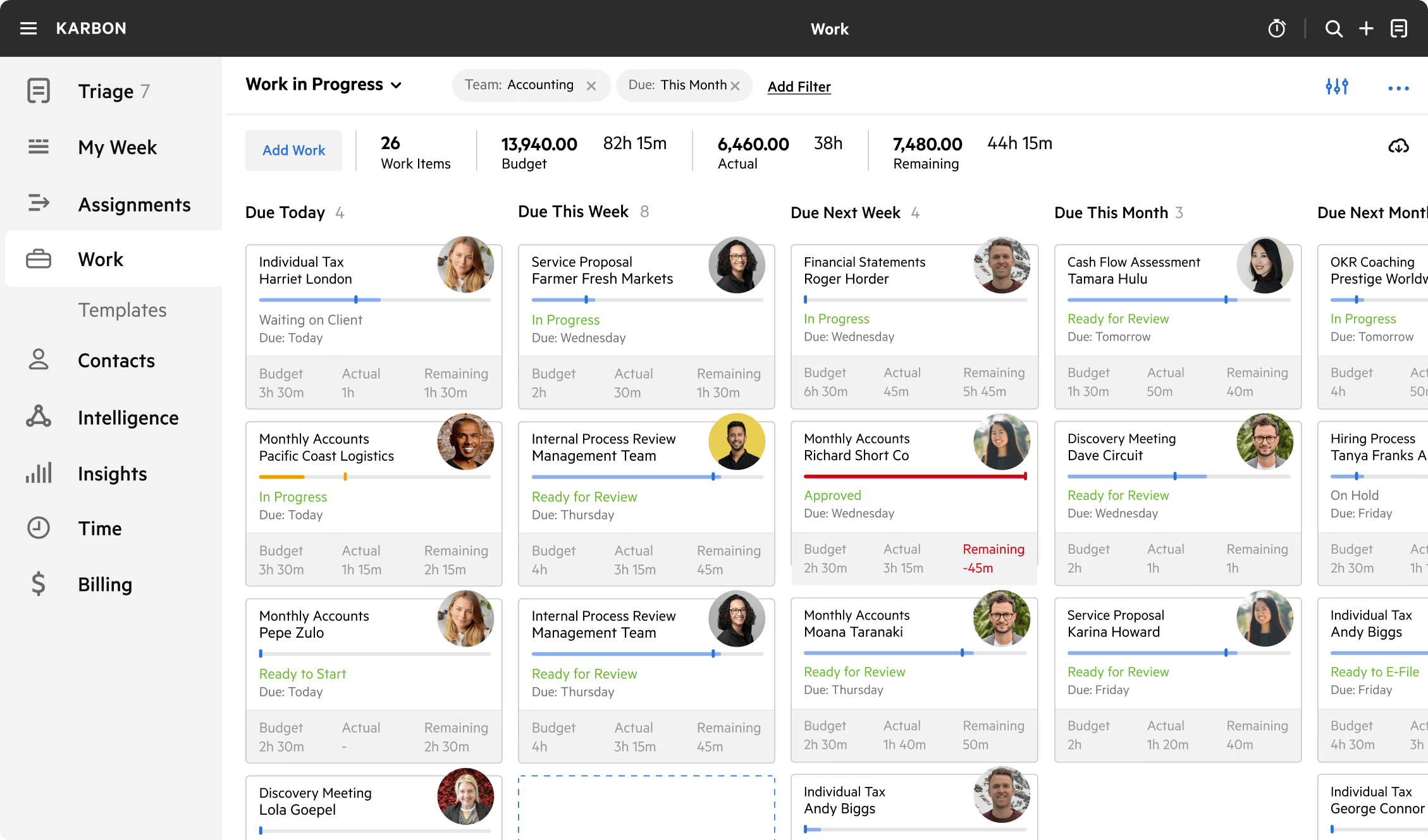
3. Canopy
Canopy is a cloud-based platform designed to simplify client and firm management with an all-in-one suite of tools. It’s a strong choice for firms that value integrated billing and client-facing features.
Key features: The software includes a built-in CRM to centralize client data and communications, along with secure portals for sharing documents and status updates. Billing and payments are built directly into the platform, streamlining invoicing and collections. On top of that, Canopy’s AI-powered insights provide firms with the data needed to identify opportunities, analyze workloads, and make proactive business decisions.

4. Xero Practice Manager
Xero Practice Manager is a natural fit for firms already using Xero’s accounting ecosystem, offering seamless integration with its bookkeeping and invoicing tools. It’s particularly effective for firms that want to unify time tracking, billing, and project management in one place.
Key features: The platform includes tools for logging time, managing tasks, and organizing deadlines, helping firms stay on top of client work. Integrated invoicing ties directly into Xero, eliminating manual data entry and ensuring accuracy. Expense tracking and project profitability reports add further visibility, making it easier for firms to manage both workflows and financial performance.
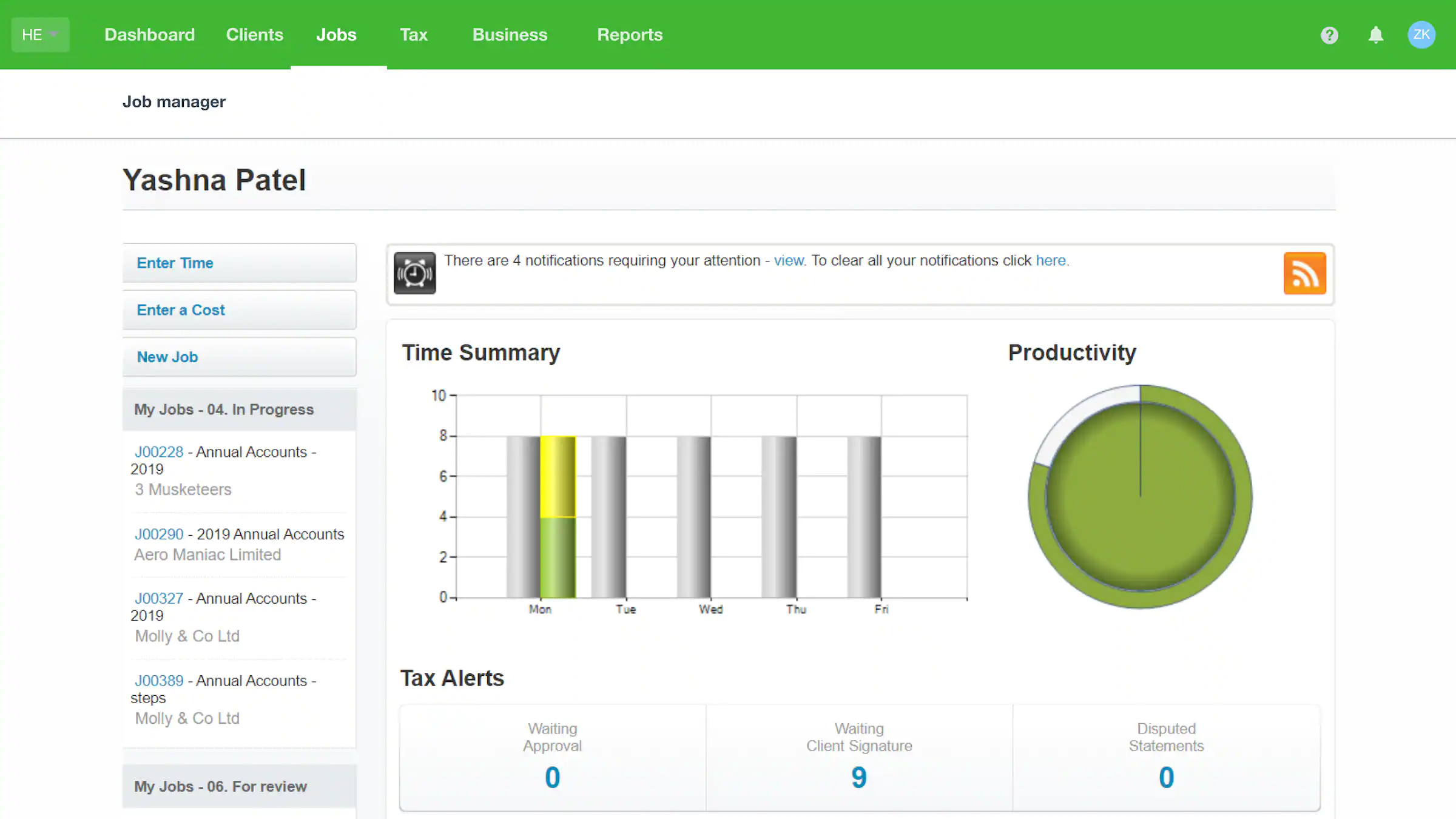
5. TaxDome
TaxDome is a comprehensive practice management solution that focuses on centralizing workflows, communications, and client-facing tools. Its client portals and branded interface help firms deliver a polished, professional experience.
Key features: Firms can streamline repetitive work with workflow automation and reusable templates, while keeping client interactions in one secure place. TaxDome also offers built-in e-signatures, PDF editing, and document management tools, cutting down on the need for third-party apps. Combined with strong collaboration features, it helps firms improve both internal efficiency and client satisfaction.
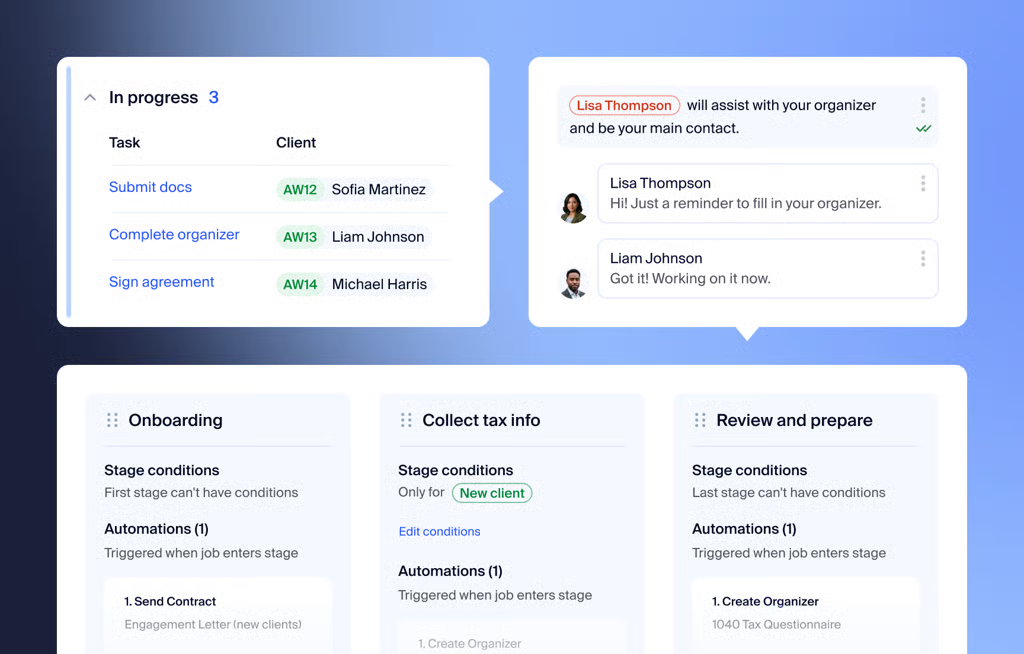
6. QuickBooks Online Accountant
QuickBooks Online Accountant is designed for firms already working within the Intuit ecosystem. It helps manage multiple clients with automated workflows, centralized dashboards, and strong document-sharing capabilities.
Key features: Multi-client dashboards give firms an at-a-glance view of all clients, helping prioritize work and monitor progress. Document sharing keeps files secure while making them easily accessible to team members. Billing and payment tools integrate with QuickBooks for seamless invoicing, while task automation reduces manual effort and improves productivity across the firm.
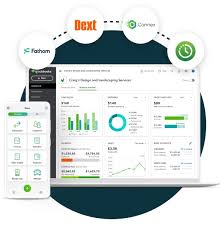
7. Firm360
Firm360 is a robust solution for firms needing full visibility into operations. From firm-wide dashboards to workflow automation, it’s built for scaling firms with complex management needs.
Key features: Custom dashboards allow managers to see overall firm performance and project status at a glance. Workflow automation streamlines repetitive processes, saving staff time and reducing errors. Secure document storage keeps client files organized and compliant, while the scalable features ensure the platform grows with your firm’s needs.
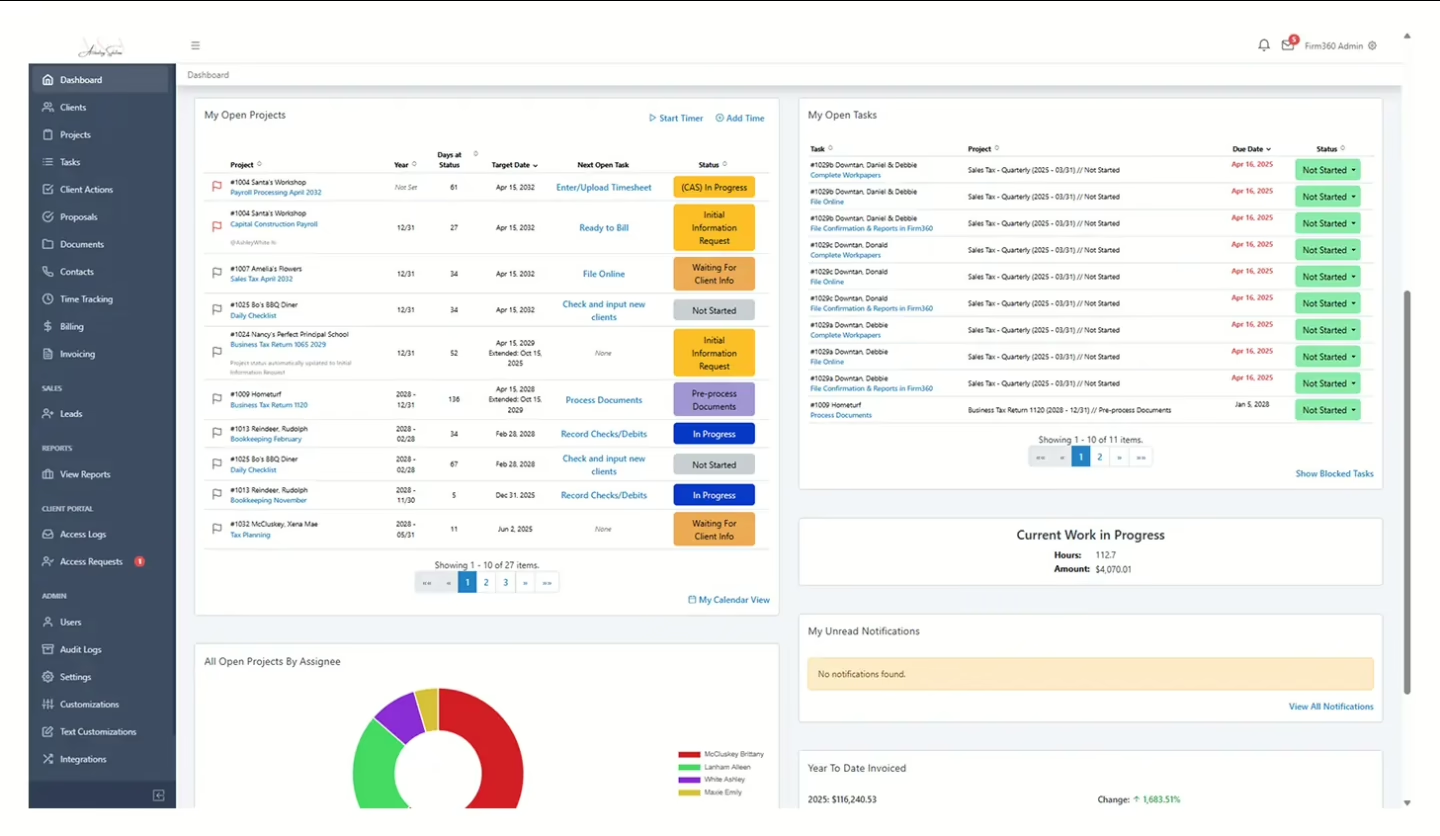
8. Financial Cents
Financial Cents is known for its simplicity and user-friendly interface, making it ideal for firms looking to streamline workflow management. Its tools focus on visibility, accountability, and client communication.
Key features: Workflow templates allow teams to standardize tasks and processes across clients. Client portals centralize communication and document exchange, while integrated billing and proposal tools simplify payments. Real-time productivity tracking helps managers monitor staff workload and ensure deadlines are met efficiently.
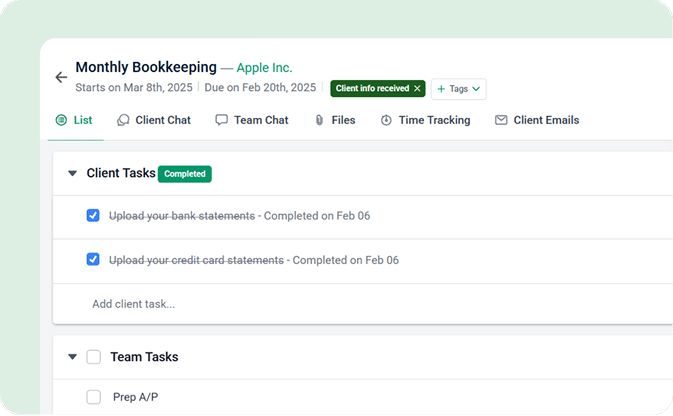
9. Keeper
Keeper is built to enhance collaboration, combining task management with client communication tools. It’s particularly useful for firms that want to keep staff aligned and clients informed without juggling multiple platforms.
Key features: Task management tools make it easy to assign and track responsibilities across teams. Automated reminders keep both staff and clients on schedule. Collaboration features centralize communication and document sharing, while customizable workflows adapt to each firm’s processes, improving efficiency and consistency.
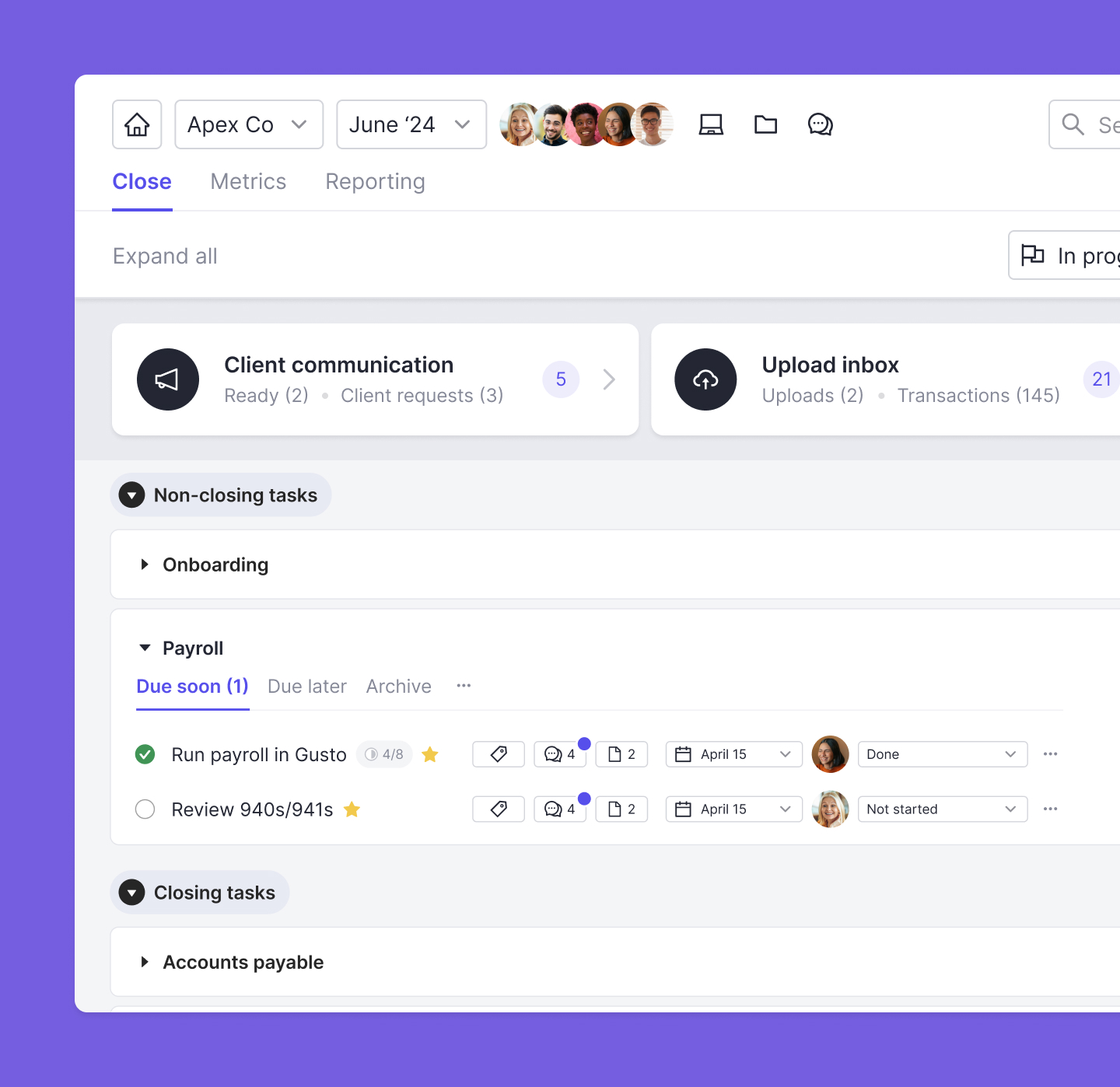
10. Uku
Uku provides flexible task and time management capabilities, making it a good choice for firms that handle recurring client work. Its automation and invoicing tools save time and reduce administrative burden.
Key features: Recurring task automation allows teams to set up repeatable processes without manual intervention. Time tracking ensures accurate billing and project monitoring. Invoicing and email workflows are integrated, streamlining communication and payments, while task templates help standardize firm processes for efficiency.
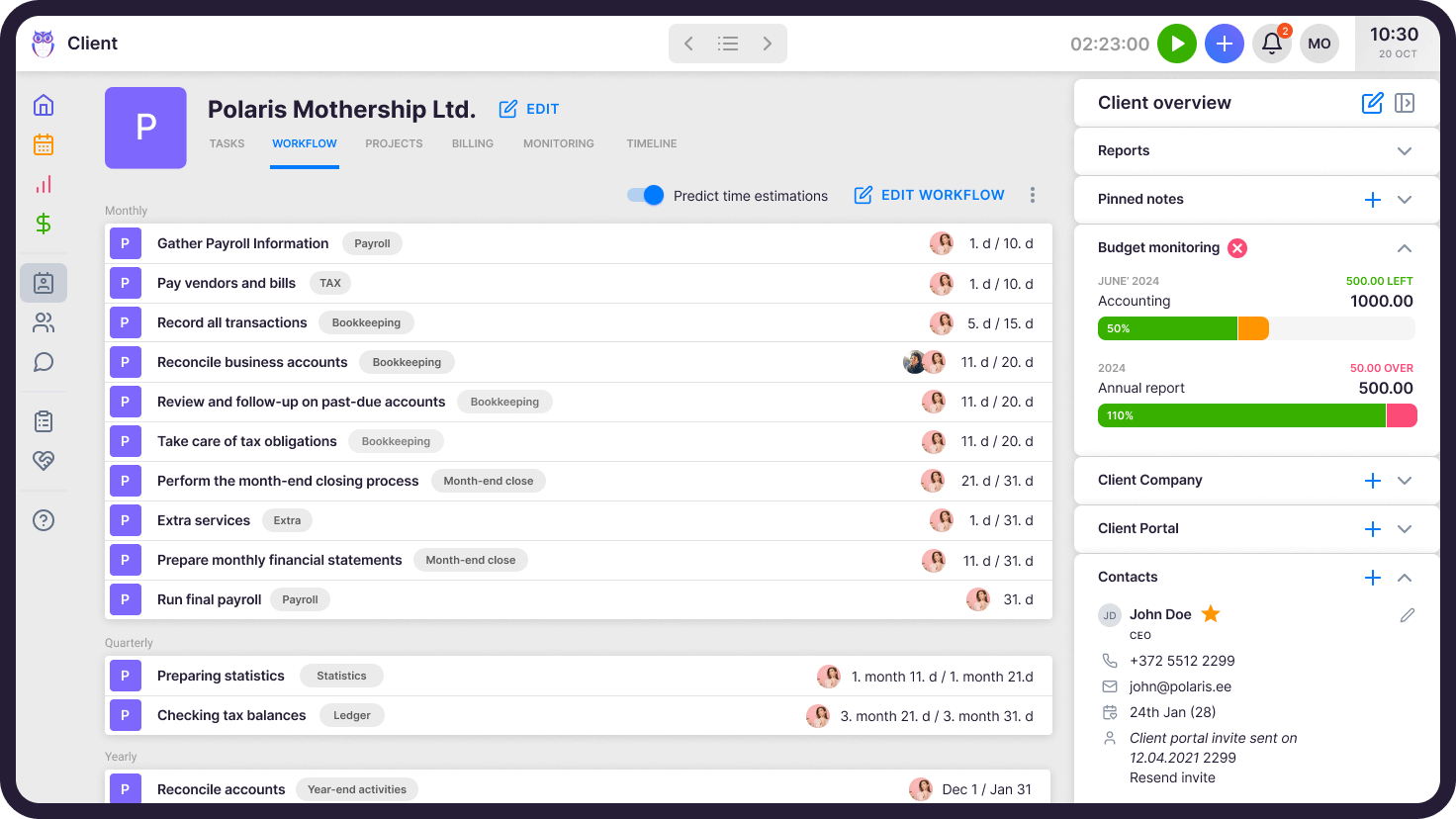
Bottom Line
The right practice management software can transform your firm from reactive task managers to proactive client service leaders. Levvy offers powerful, intuitive tools that streamline workflows, improve billing, support scalability, and keep clients and teams aligned.
Other platforms like Karbon, Canopy, QuickBooks Online Accountant, or Financial Cents have their strengths, but Levvy is purpose-built for accounting firms that want to cut the busywork, scale with confidence, and deliver client value faster.
Ready to see how Levvy can work for your firm? Schedule a demo today and experience the difference for yourself.

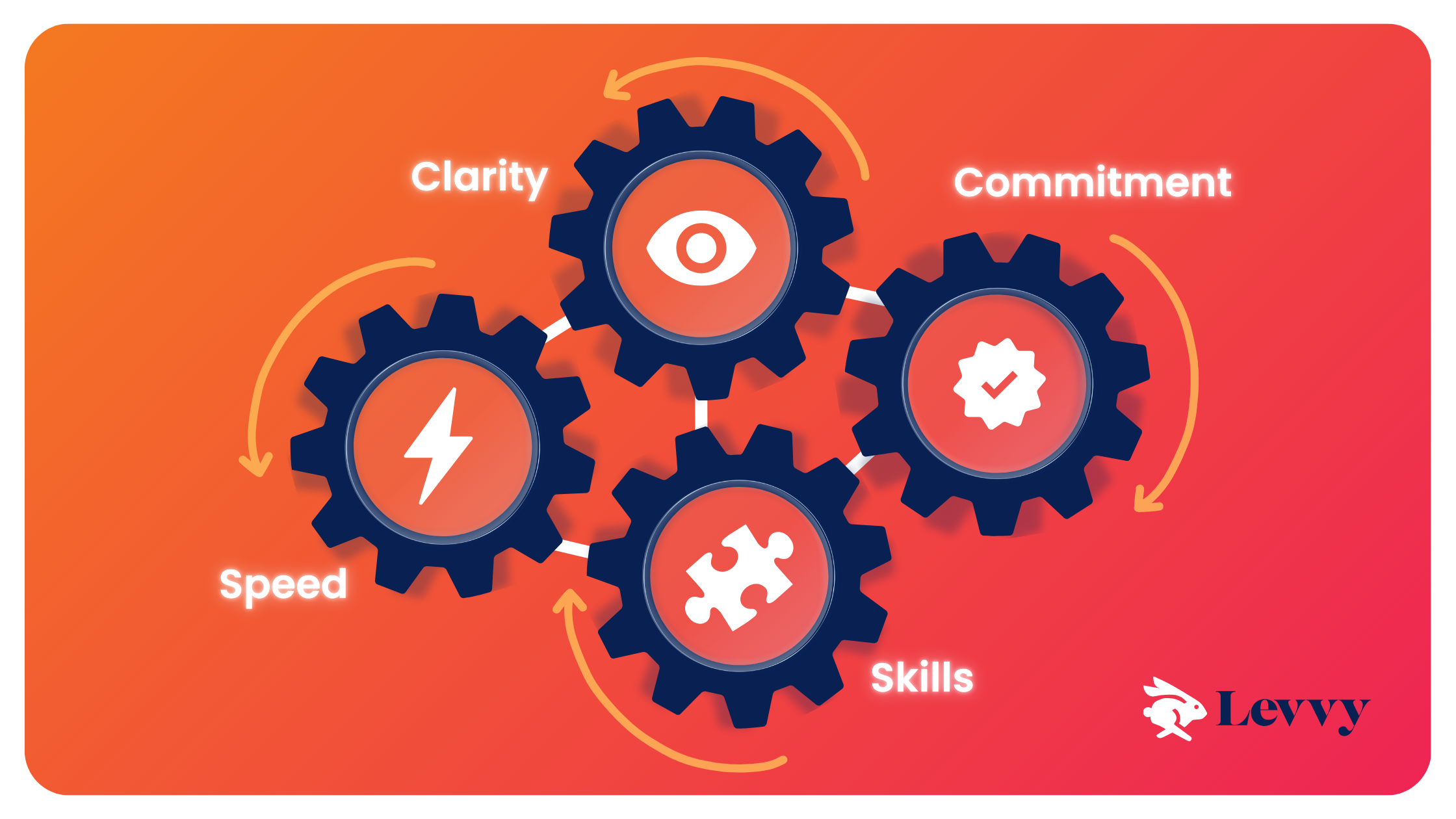
.png)
.png)



